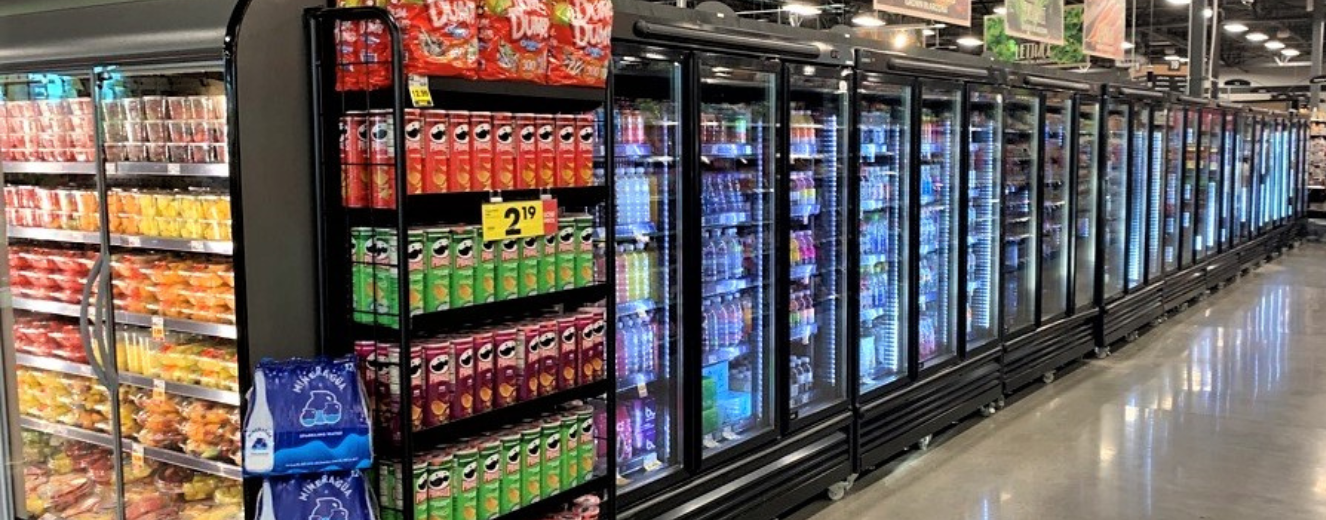The world has witnessed a growing environmental concern and a renewed commitment to combating climate change in recent years. As part of these global efforts, the Environmental Protection Agency (EPA) in the United States has been actively working on regulations aimed at reducing greenhouse gas emissions. One significant area of focus is the regulation of refrigerants, which play a pivotal role in the grocery store industry. This blog post will discuss the upcoming EPA regulations on refrigerants and what grocery stores need to know to stay compliant and environmentally responsible.
The Importance of Refrigerants in Grocery Stores
Refrigerants are the lifeblood of grocery stores, ensuring that perishable goods are kept fresh and safe for consumers. Whether it's fruits and vegetables, dairy products, or frozen foods, refrigeration systems are essential for maintaining the quality and safety of these items. However, the refrigerants used in these systems impact the environment.
Historically, many refrigerants, such as chlorofluorocarbons (CFCs) and hydrochlorofluorocarbons (HCFCs), are harmful to the ozone layer and contributors to global warming. In response to these concerns, the EPA has been working on regulations to phase out these harmful refrigerants and promote the adoption of more environmentally friendly alternatives.
Upcoming EPA Regulations
The EPA has taken several significant steps to regulate refrigerants to reduce their environmental impact in recent years. Here are some essential regulations and deadlines that grocery store owners and managers should be aware of:
Phaseout of HCFCs: The EPA has already initiated the phaseout of hydrochlorofluorocarbons (HCFCs), including R-22, a common refrigerant used in commercial refrigeration systems. As of January 1, 2020, the production and import of R-22 are no longer permitted. Grocery stores should have already transitioned to alternative refrigerants or upgraded their equipment to be compatible with these alternatives.
SNAP Program: The EPA's Significant New Alternatives Policy (SNAP) program identifies acceptable and unacceptable refrigerants for various applications. Grocery store owners must ensure that they are using approved refrigerants and following the guidelines provided by the SNAP program.
HFC Phaseouts: The EPA has put forward regulations to gradually eliminate specific hydrofluorocarbons (HFCs) with high global warming potential, frequently employed as refrigerants. These rules promote the adoption of refrigerants with lower global warming potential. Grocery stores should stay informed about these updates and prepare to transition to compliant refrigerants by October 7th.
Leak Detection and Repair: The EPA has established regulations for leak detection and refrigeration equipment repair to reduce emissions. Grocery stores must develop and implement leak detection programs, conduct regular inspections, and promptly repair leaks.
What I need to know as a Grocery Retailer
Adapting to Changing Regulations: The grocery industry operates in a dynamic regulatory landscape, and it's imperative to proactively “future-proof” your operations, especially regarding refrigerants. When planning a remodel or refit, seize the opportunity to evaluate your refrigeration systems comprehensively. Verify their compliance with existing regulations and take proactive steps to anticipate and accommodate forthcoming changes. Consider investing in systems that employ eco-friendly refrigerants to align with the EPA's evolving objectives. This forward-thinking approach will position your business to stay ahead of regulatory shifts and support sustainability goals.
Energy Efficiency: A remodel or refit is an ideal time to prioritize energy efficiency. Updating lighting, HVAC systems, and refrigeration units can result in significant long-term savings on utility bills. Energy-efficient systems are often eligible for rebates and incentives, making the remodeling process financially advantageous.
Customer Experience: A store remodel or refit is not just about meeting regulations; it's an opportunity to enhance the overall shopping experience. Modernize your store layout, improve signage, and create a welcoming ambiance to keep customers engaged and satisfied. Additionally, consider incorporating sustainable and energy-efficient elements that appeal to environmentally conscious shoppers.
The forthcoming EPA refrigerant regulations are pivotal in broader efforts to combat climate change and protect the environment. Grocery store owners and managers, including those partnering with Lowe Rental Retail Refrigeration, must remain vigilant in keeping abreast of these regulations, strategizing for compliance, and contemplating the enduring advantages of embracing environmentally responsible refrigeration technologies. By doing so, they contribute to creating a sustainable and accountable future for the grocery store industry and ensuring their valued customers' continued availability of fresh and safe products.
